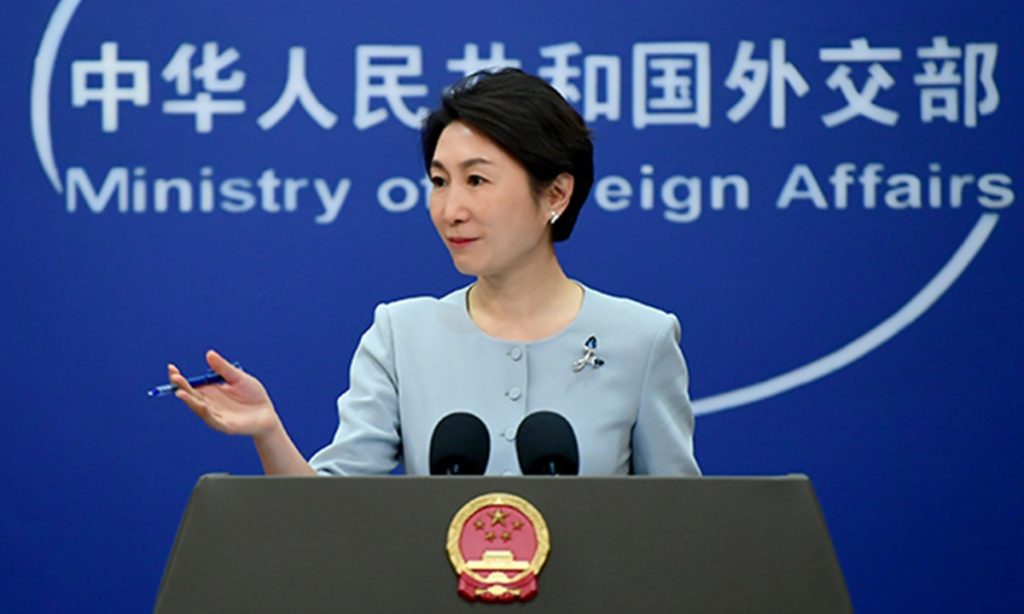China’s FM, top legislature condemn so-called Philippine maritime act

The National People's Congress (NPC), China's top legislature, on Friday expressed firm opposition to and strong condemnation of the Philippines' introduction of the so-called Philippine Maritime Zones Act.
The Foreign Affairs Committee of the NPC said in a statement that the act is an attempt by the Philippines to enforce the illegal arbitral award on the South China Sea issue in 2016 through its domestic legislation, and is a serious infringement upon China's territorial sovereignty and maritime rights and interests in the South China Sea, Xinhua reported.
The Chinese Foreign Ministry has summoned the Philippine Ambassador to China to make serious protests, Chinese Foreign Ministry spokesperson Mao Ning said on Friday.
The Chinese Foreign Ministry also issued a statement on Friday on the enactment by the Republic of the Philippines of its "Maritime Zones Act" and "Archipelagic Sea Lanes Act." The so-called Philippine Maritime Zones Act illegally includes China's Huangyan Dao and most of the islands and reefs of China's Nansha Qundao (Nansha Islands) and relevant waters into the maritime zones of the Philippines, and attempts to enshrine the illegal award of the South China Sea arbitration in the form of domestic legislation, read the statement.
China strongly condemns and firmly rejects this as the move gravely infringes upon China's territorial sovereignty and maritime rights and interests in the South China Sea. China's territorial sovereignty and maritime rights and interests in the South China Sea shall by no means be affected by the enactment of the Act, the statement said.
Mao said China's territorial sovereignty and maritime rights and interests in the South China Sea are solidly grounded in history and the law, comply with international law including the United Nations Convention on the Law of the Sea (UNCLOS), and will not be affected by the "Maritime Zones Act." The so-called arbitral award on the South China Sea is illegal, null and void. China does not accept or recognize it.
The statement by Foreign Ministry noted that the Philippines' territory so defined has nothing to do with China's Huangyan Dao and Nansha Qundao. The Philippines has invaded and illegally occupied Mahuan Dao, Feixin Dao, Zhongye Dao, Nanyao Dao, Beizi Dao, Xiyue Dao, Shuanghuang Shazhou and Siling Jiao of China's Nansha Qundao, and by doing so has seriously violated international law, including the Charter of the United Nations.
The Philippines broke its own promise and kept a warship illegally grounded at Ren'ai Jiao of China's Nansha Qundao for decades, thus infringing upon China's territorial sovereignty and violating the Declaration on the Conduct of Parties in the South China Sea (DOC), especially its Article 5 which asks the parties to refrain from action of inhabiting on the uninhabited islands and reefs, the statement said.
Once again China urges the Philippines to immediately withdraw all its personnel and facilities from the aforementioned islands and reefs and immediately tow away the warship illegally grounded at Ren'ai Jiao. The establishment of the so-called "Kalayaan Island Group" beyond its own territorial scope by the Philippines infringes upon China's territorial sovereignty, and is illegal and invalid, read the statement.
The Philippines seeks to justify its illegal claims and actions in the South China Sea by approving the so-called "Maritime Zones Act" in the name of implementing UNCLOS. This is illegal, null and void. This so-called legislation seriously violates the Declaration on the Conduct of Parties in the South China Sea and will make the situation in the South China Sea more complex. China will firmly oppose any infringement activities and provocations by the Philippines in the South China Sea based on the act, Mao noted.
China urges the Philippines to earnestly respect China's territorial sovereignty and maritime rights and interests, immediately end any unilateral move that may escalate the dispute and complicate the situation, and keep the South China Sea peaceful and stable. China reserves the right of taking all measures necessary, the spokesperson said.
Various parts of the Philippine "Archipelagic Sea Lanes Act" are not compatible with regulations of international law and resolutions of the International Maritime Organization. We ask the Philippines to earnestly abide by international law and not to undermine other countries' lawful rights under UNCLOS and other international law, Mao said.